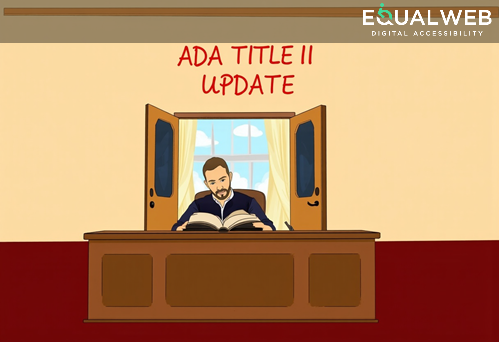The regulatory sphere may be intimidating for some businesses, but compliance with web accessibility standards does come with benefits, which we were happy to list here for your convenience.
Here is our six-point
EAA compliance list of perks and bonuses for your business:
1. Increased traffic
Around 1.3 billion people in the world live with at least one type of disability, according to the
World Health Organization (WHO). That is about 16 percent of the global population—no number to shirk at. On top of that, you have a large senior population that shares impaired conditions in some form or another and that will benefit greatly from accessible websites. For instance, an elderly person may have lost some of his vision capacity, and larger fonts or better contrast modes would make the website much more accessible and easily navigable for this person.
Losing out on this huge population that can become loyal and regular customers of your business is detrimental to your bottom line. Not only would you be losing engagement that otherwise would increase your website’s traffic but you are losing these customers to competitors that have taken action before you and already made their websites accessible.
No worries though, as the online environment is still far from achieving satisfying accessibility standards, so if you act now toward accessibility you may gain a competitive edge over your competitors.
2. Brand reputation
Let’s face it, brand marketing is one of the most important aspects of a business’s reputation. If you wish to maintain the hard-earned reputation of your business, catering to the demand of the public, including its social consciousness, is one of the key ingredients for success.
Corporations and organizations that do not provide accessible services are going to be left behind the social trends. If one popular website with millions of visitors has accessibility features and another doesn’t, it will not reflect well on the look and “feel” of that website. Online trends tend to follow each other at a major speed, and if your website won’t follow in the footsteps of the big brands, most chances it will stain the reputation of your brand and stave off potential customers who have become accustomed to the style of accessible websites.
3. SEO
This is not a well-known benefit when it comes to web accessibility, but featuring elements such as Alt Text, dictionary definition, clear labelings, and some code modifications could provide you with higher search results on Google and other search engines.
In short, the more accessible your website is, the easier it will be for Google’s Web crawlers (or spiderbots) to catalog your content and index it higher in the search engine.
4. User-friendly experience
When your website is accessible your accessibility features can be used by everyone, including users that don’t have disabilities. Multiple functions such as contrast modes, saturation, font customizing, spacing, color customization, etc. may be preferred differently by different users.
But most importantly, users that need accessibility features will experience an intuitively gratifying browsing capacity that, otherwise, would not be available to them. This benefit is not tangible, but the extra mile offered by your organization would go a long way to improving the experience of your customers and shape your relationship for years to come.
And if that wasn’t enough, the EqualWeb Auto AI Accessibility tool is super lightweight, so it won’t affect the performance levels of your website—and it works super fast for the users with disabilities who do activate it.
5. Diversity, equity, inclusion
Businesses that don’t offer the DEI option are not fulfilling their societal duty. At the end of the day, living in an environment, be it digital or the physical world, that excluded individuals with different backgrounds for whatever reason (gender, race, religion, disability, or ability) is an environment that is less exciting, less vibrant, less caring, and less just.
As humans we want to do what’s right. Not only for present circumstances but for future generations and the well-being of mankind. DEI is a big social phenomenon right now and businesses that choose not to adhere and work toward a better future are simply not putting in the effort that is socially required of them.
6. Early compliance
Okay, so this is a fairly obvious point, but complying now with the law will ensure your business operation gets familiar with web accessibility guidelines and standards, serving as a platform to avoid unnecessary and costly legal claims in the future.
Having your leaders, managers, and staff get acquainted with web accessibility today will save you much time and effort when the legislation comes into effect in 2025.
Conclusion
In summary, remediating your digital assets has many advantages and can help your business reach new levels of proficiency and exemplary customer service. At the end of the day, governments around the world have decided to act for the benefit of people with disabilities and compliance with regulations is a must for businesses that are looking into the future. An equal society will extract the potential of every human being and we don’t want to leave any person, no matter his or her circumstances, behind. The digital revolution requires we strive for inclusion, diversity, and web accessibility.
If you need more information, EqualWeb can finetune your website according to the highest and latest web accessibility standards, ensuring you comply with legislation and are protected from lawsuits. EqualWeb offers the leading accessibility solutions in the market and a wide range of possibilities that would fit the specific needs of your business and website(s). The process toward web accessibility begins with the small step of implementing a generated code to your website, and EqualWeb will do the rest.
Book a meeting with an accessibility expert today, free of cost:




